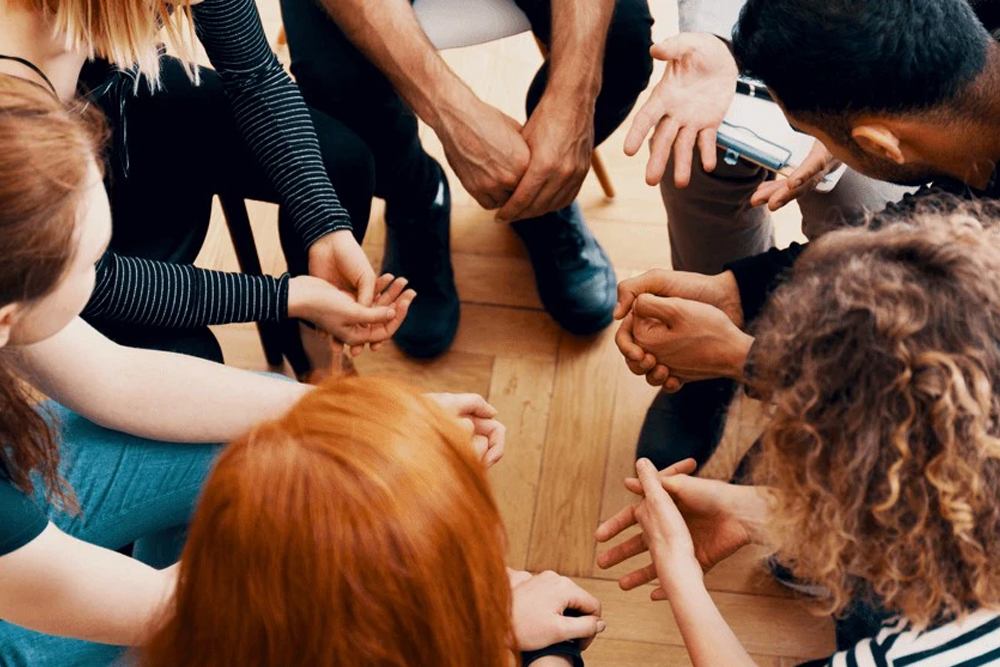If you live with family members suffering from alcohol addiction, life is especially hard. Your relationship with your loved ones may even be your number one source of stress at home. For people with alcohol use disorder, their behavior patterns are not consistent. When they’re sober, they may be the nicest of people. But when they’re under the influence of alcohol, they can turn into aggressive, abusive, sometimes even violent versions of themselves.
These living situations are particularly damaging to younger kids and teens. Usually, one or both of their parents are the ones suffering from alcoholism. Kids may find it very hard to trust and love their parents who are under the control of alcohol. They may even encounter a lot of childhood traumas from their parents’ misbehavior.
If the parents do not wish to seek help, the kids often feel helpless to improve their situations. That’s where a support group called Alateen comes in. Alateen is a special group under Al-Anon, which is a mutual support group for the families of people with substance abuse problems. Alateen is specifically for teenagers who are in the same sitiuation. In these groups, teens meet with fellow teens whose lives have been affected by someone else’s drinking problems.
If you’d like to know more about Alateen, here are some important things to know.
What is Alateen?
Alateen operates under Al-Anon, and it caters to the younger members of the groups. They are usually teenagers who live with relatives at home having alcohol use disorder. Most of the time, it’s their parents who have alcohol addiction, though it could also be other close relatives.
Alateen makes use of the same 12 steps used by Al-Anon and Alcoholics Anonymous (AA). Here are those steps:
 We admitted we were powerless over alcohol and our lives had become unmanageable.
We admitted we were powerless over alcohol and our lives had become unmanageable.- Came to believe that a Power greater than ourselves could restore our sanity.
- Made a decision to turn our will and our lives over to the care of God as we understood Him.
- Made a searching and fearless moral inventory of ourselves.
- Admitted to God, to ourselves, and to another human being the exact nature of our wrongs.
- Were entirely ready to have God remove all these defects of character.
- Humbly asked Him to remove our shortcomings.
- Made a list of all persons we had harmed, and became willing to make amends to them all.
- Made direct amends to such people wherever possible, except when to do so would injure them or others.
- Continued to take personal inventory and when we were wrong promptly admitted it.
- Sought through prayer and meditation to improve our conscious contact with God as we understood Him, praying only for knowledge of His will for us and the power to carry that out.
- Having had a spiritual awakening as the result of these steps, we tried to carry this message to others, and to practice these principles in all our affairs.
What happens in an Alateen meeting?
 Usually, members share their experiences living with someone abusing alcohol at home. They talk about their struggles, how they cope, and the things they’ve learned from their experiences.
Usually, members share their experiences living with someone abusing alcohol at home. They talk about their struggles, how they cope, and the things they’ve learned from their experiences.
Members can also ask each other questions and learn from each other. Of course, they can also encourage one another, as everyone is going through a similar struggle.
Facilitators let each member understand the purpose of Alateen. Also, they walk them through the 12 steps, what they’re all about, and how they can help them cope with their situations.
What do teens commonly learn in Alateen?
 Teens are taught many truths about drinking and alcohol use disorder in the meetings. First of all, members learn that their loved ones’ drinking problems are a disease. That’s why it’s called alcohol use disorder. When addiction takes hold, drinking becomes something that people cannot control.
Teens are taught many truths about drinking and alcohol use disorder in the meetings. First of all, members learn that their loved ones’ drinking problems are a disease. That’s why it’s called alcohol use disorder. When addiction takes hold, drinking becomes something that people cannot control.
They’re also taught that compulsive drinking is a family disease, as it affects all members of the family emotionally, and sometimes, physically.
One essential thing that teens will learn is they are not the cause of anyone’s drinking problems. Often, many teens who have parents abusing alcohol blame themselves for their parents’ drinking. But this is not true, and Alateen reinforces this idea among its members.
Teens also learn the value of personal responsibility. In other words, they’re taught that they can’t do much about other people’s behavior, but they can control their own. With that, the teens can change how they respond to the situation at home.
Over the course of Alateen meetings, teens will realize they can keep developing themselves and unlocking their potentials no matter what happens at home. Their parents or loved ones should not prevent them from realizing those dreams.
Maintaining a good relationship with a parent under the control of alcohol is nearly impossible. Despite that, teens also learn that they can keep loving their parents while detaching themselves from their drinking problems. In other words, the parents’ alcoholism is not the teens’ problem to solve. With that mindset, teens would have a lot less stress living with their parents.
Should I go to Alateen?
If you’re still figuring out whether Alateen is right for you or not, answer these 20 questions:
- Do you believe no one could possibly understand how you feel?
- Do you cover up your real feelings by pretending you don’t care?
- Do you feel neglected, uncared for, or unloved?
- Do you tell lies to cover up for someone else’s drinking or what’s happening in your home?
- Do you stay out of the house as much as possible because you hate it there?
- Are you afraid or embarrassed to bring your friends home
- Has someone’s drinking upset you?
- Are mealtimes, birthdays, and holidays spoiled because of drinking or others’ reactions to the drinking?
- Are you afraid to speak up for fear the drinking or fighting will start again?
- Do you think the drinker’s behavior is caused by you, other members of your family, friends, or rotten breaks in life?
- Do you make threats such as, “If you don’t stop drinking and fighting, I’ll run away?”
- Do you make promises about behavior, such as I’ll “get better grades,” or “keep my room clean,” or “do anything you want,” in exchange for a promise that the drinking and fighting will stop?
- Do you feel that if the drinker loved you, she or he would stop drinking?
- Do you ever threaten or actually hurt yourself to scare the drinker into saying, “I’m sorry,” or “I love you”?
- Do you or your family have money problems because of someone else’s drinking?
- Are you scared to ride in a car with the drinker?
- Have you considered calling the police because of abusive behavior?
- Do you avoid dating or having close friends because they may find out about the drinking or fighting?
- Do you think your problems would be solved if the drinking stopped?
- Do you ever treat teachers, friends, teammates, etc. unfairly because you are angry about someone else’s drinking?
If you answered “Yes” to any of them, you could benefit a lot from Alateen.
